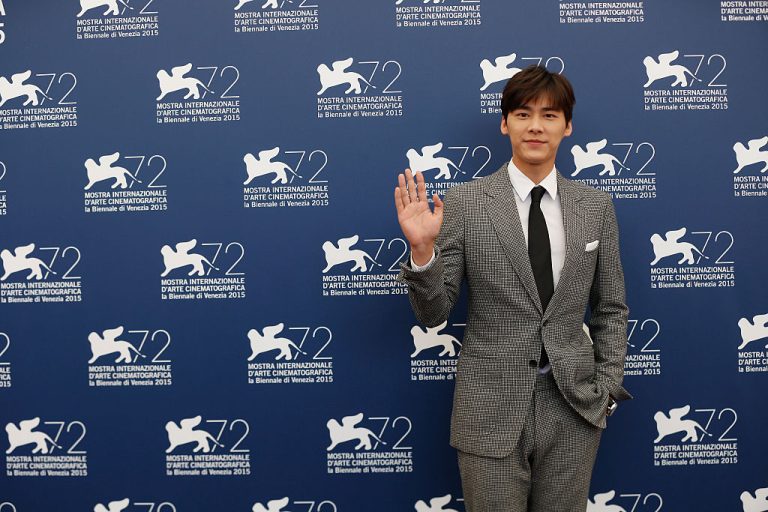Li Yifeng, known as one of China’s most popular actors, has been arrested on charges of illegally soliciting prostitution.
According to state media reports, Li, 35, was apprehended by police in Beijing on Sunday, Sept. 11, and allegedly confessed to having solicited prostitutes on multiple ocassions.
Beijing’s Municipal Public Security Bureau, posted on its official Sina Weibo account (China’s Twitter-like social media platform) that Li had been “arrested under criminal charges,” and had been dropped by several large brands that represented him. Though the bureau did not disclose Li’s full name in its original post, state outlets CCTV and the Global Times later confirmed that it was indeed the actor — citing sources from “authoritative channels.”
MORE ON CELEBRITY SCANDALS IN CHINA:
- US-Born Star Wang Leehom Apologizes to Wife for Infidelity, Announces Temporary Hiatus
- Chinese Tennis Champion Peng Shuai Missing After Sexual Allegations Against Former Communist Official
- China’s Silence on Peng Shuai Shows Cracks in Beijing’s Propaganda Apparatus
- Chinese Reporter in Japan Attempts Suicide After Being Heaped With Online Abuse for Shedding Tears at Abe’s Death
- China’s Pop-Culture Purge Continues; Authorities Call for Boycott of ‘Sissy Idols’
Following the Beijing authorities’ announcement on the arrest, Li’s studio issued a statement claiming that “certain internet comments about his personal life were simply rumors,” and that the actor had “always abided by professional ethics, adhered to the moral bottom line and actively shown social responsibility.”
Li reportedly also posted on his own Weibo account — where he has amassed over 60 million followers — that the rumors circulating about him had “caused him emotional damage and affected his ongoing businesses and acting career.”
Success
You are now signed up for our newsletter
Success
Check your email to complete sign up
Shortly after however, all the posts were deleted from the internet — with related search terms that involved Li — also scrubbed clean from all Chinese social media, state-backed media reports said.
In China, all online content is carefully monitored by the authorities, and any posts that are deemed sensitive to government policy, or portray the government in a negative light are immediately removed.
The Chinese government also reserves the right to censor any social media accounts, and publicly speaking out against government-mandated policies or political figures could result in arrest, imprisonment, or worse.
Dropped from labels
Several brands, including Prada, Sensodyne and RemyMartin terminated their partnerships with the actor on Sept. 12 — according to their official Weibo accounts — though none of the companies elaborated on the reasons behind the drop.
Furthermore, state-backed paper “China Daily” reported that the organizing committee of the Huading Awards would be rescinding the actor’s titles for “Best Actor in China’s Top 100 TV Dramas” and “The National Audience’s Favorite Movie Star” for 2021.
Also known under the name Evan Li, the actor became a household name in China and gained popularity across Asia due to his roles in acclaimed films: “My People, My Homeland” and “Mr. Six.” Li also played the role of Communist leader Mao Zedong in a 2021 film, titled “The Pioneer.”
He also participated in a national TV talent show in 2007, which contributed to his rise in popularity.
Immoral behavior
In recent years, authorities in China have increasingly targeted celebrities, influencers, and internet personalities for “promoting improper beauty standards.” Sina Weibo also reportedly suspended thousands of accounts related to fan clubs and entertainment news.
In September 2021, authorities began a fresh crackdown in hopes of discouraging what they deemed as “unhealthy obsession for chaotic fan culture and immoral behavior,” and implemented an outright ban on “effeminate men” being shown on TV.
Furthermore, Chinese regulators said broadcasters must “resolutely put an end to sissy men and other abnormal aesthetics,” while using the slang term “niang pao” — which literally translates to “girly guns” — a term used to refer to hyper-feminine men.
The country’s National Radio and Television Administration (NRTA) released an eight-point plan late last year, in which it called for “further regulation of arts and entertainment shows and related personnel,” and sought to promote “traditional Chinese culture, revolution culture and socialist culture,” while addressing what authorities consider “vulgar internet celebrities.”
The plan explicitly states that broadcasters should “boycott illegal or immoral personnel,” and exercise caution when “selecting entertainers and guests, radio, television and internet platforms should not employ people who have an incorrect political stance, break laws and regulations, or speak or behave against public order and morals.”














